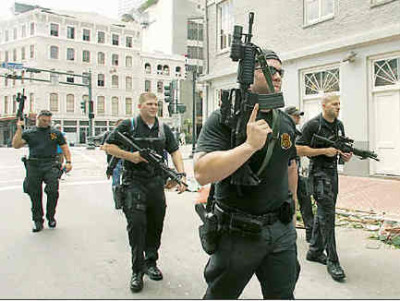Newly-disclosed US State Department documents offer revelations about Blackwater, the security firm used by the American Government in the occupation of Iraq: weeks before Blackwater guards killed 17 Iraqi civilians in 2007 in a Baghdad square, a memo warned of a “an environment full of liability and negligence”.
However, the inquiry was abandoned after Blackwater’s top field manager issued a threat: “he could kill” the government’s chief investigator and “no one could or would do anything about it as we were in Iraq”.
The documents, published by The New York Times, record the numerous Blackwater violations investigated by Jean Richter and Donald Thomas, special agents for Diplomatic Security and the State Department.
In one episode, four drunken Blackwater personnel commandeered an armoured vehicle worth $180,000 and drove it to a private party before crashing it into a concrete barrier. Other violations included poor maintenance of Blackwater vehicles, guards storing arms in private bedrooms where drunken parties took place, and squalid conditions where employees of a Blackwater-affiliated firm –– “third-country nationals” from Pakistan and Yemen –– were forced to sleep.
However, the investigation was effectively quashed by the US Embassy in Iraq, after Blackwater’s chief manager, Daniel Carroll, said that he could kill Richter with no threat of consequences. The Embassy ordered Richter and Thomas to leave the country.
Unsurprisingly, the investigators concluded that US Embassy personnel had become too close to the Blackwater contractors. Richter wrote in an August 31, 2007 memo that “the contractors, instead of Department officials, are in command and in control”.
An expert on private security contractors, Peter Singer, told the Times, “The Blackwater-State Department relationship gave new meaning to the word ‘dysfunctional’…shortchanging broader national security goals at the expense of short-term desires.”
After the Nisour Square massacre, Condoleeza Rice authorized a panel to examine the events and recommend reforms; however, neither Richter or Thomas were contacted.
Patrick Kennedy, the State Department official who led the panel, concluded, “We interviewed a large number of individuals…We did not find any, I think, significant pattern of incidents that had not — that the embassy had suppressed in any way.”

